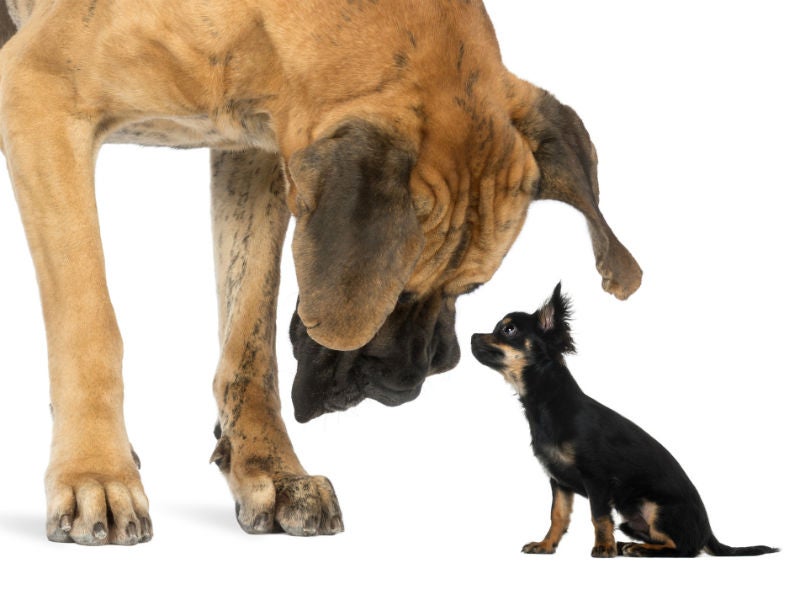
Paid Advertisement
Every dog is unique, and different-sized dogs have very different physiological needs. Finding the right nutrition for a 7-pound Papillon or 200-pound Mastiff can be complicated. In addition to designing food to meet the unique needs of small, medium and large dogs, we at Royal Canin research breed-specific traits and combine scientific and nutritional research from our network of experts to create precise nutrition for every dog.
Breed Size Nutrition
No matter the breed of the dog, it’s imperative to provide the nutrition they need in a kibble that they will want to eat.
Many dog owners may be surprised to learn that small dogs require a higher level of calories per pound of body weight than large dogs do. And since smaller dogs can be fussy eaters, their food must appeal to their taste buds to ensure that they get the nutrients they need.
Many medium-sized dogs are known for their high energy output. They need to eat a balanced diet to maintain a healthy weight, a glossy coat and strong bones.
Large dogs need special nutrition that fits their way of life, including support for a healthy weight and strong joints.
ROYAL CANIN® Small Dog food has been specifically designed with a smaller-sized, tasty kibble for a variety of small dog breeds weighing up to 22 pounds. ROYAL CANIN Medium Dog food helps to maintain natural defenses and sustain energy levels of a variety of medium-sized dogs that weigh 23-55 pounds, while ROYAL CANIN Large Dog food is designed for dogs that weigh between 56 and 100 pounds.
Different Breeds, Different Nutrition
While size health nutrition is focused on nutrients to support energy levels and joint health, breed health nutrition features highly digestible protein sources and unique nutrients. It’s also designed with the ideal specific shape, size and texture for each dog’s facial and jaw structures and biting patterns.
Different dog breeds require different nutrition. Why do tailored diets matter? Compare, for example, the Golden Retriever and the Labrador Retriever. While both have “Retriever ” in their name, they have more differences than you might expect, and they can benefit from a diet rich in nutrients selected specifically for their breed.
Golden Retrievers are prone to cardiac sensitivity and can benefit from nutrition that supports healthy cardiac function. On the other hand, Labrador Retrievers are bred to swim in the icy waters of the Atlantic Ocean, and they can have a huge appetite, so a carefully controlled diet can help them avoid becoming overweight. And while both breeds have a scissor bite, Labrador Retrievers tend to eat more quickly, so they benefit from a kibble that helps them to slow down and encourages them to chew thoroughly.
Every breed group has similar nuances. German Shepherd Dogs are loved for their courage, loyalty and intelligence. Yet for all their strength of body and mind, they have a notoriously sensitive gastrointestinal system. Royal Canin therefore crafts their formula with highly digestible proteins and specific fibers to help their insides be as strong as their outsides.
Visit https://www.royalcanin.com/us/dogs/breeds/breed-library to explore our library of more than 300 breeds, including nutritional and exercise requirements, temperaments and general breed information, and check out ROYAL CANIN breed-specific dog foods.


